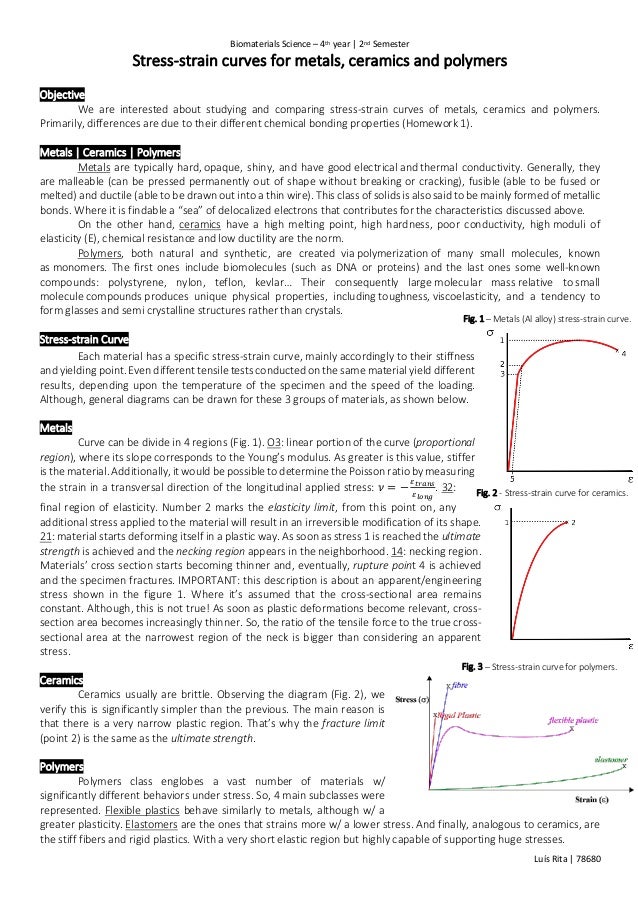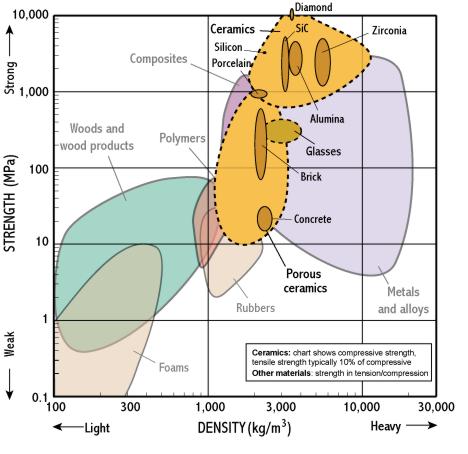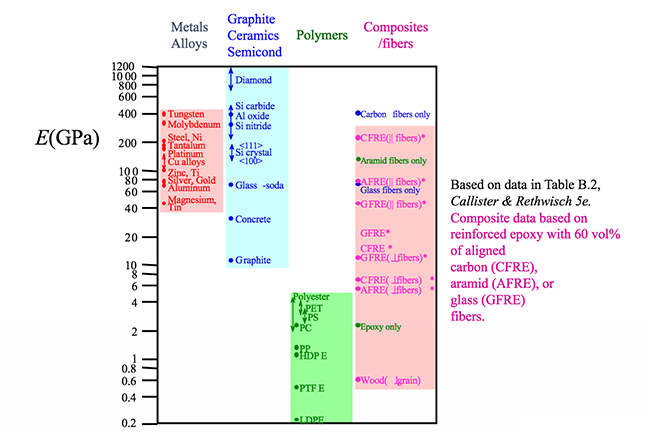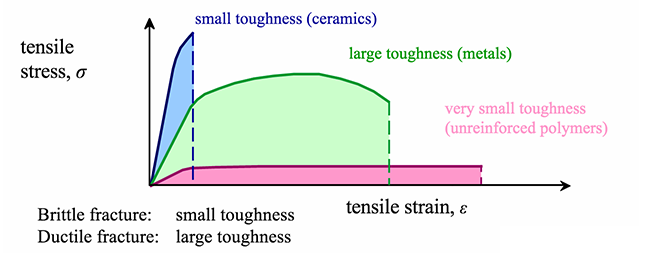Alloying can be applied to metals ceramics and polymers where in each specific properties are desired.
Mechanical properties of metals ceramics and polymers.
Common objects that are made of ceramic materials.
Therefore this property of the polymer is highly advantageous because we can replace metal with plastic.
Basis are comparable to the metals and ceramics.
Scissors a china tea cup a building brick a floor tile and a glass vase.
Metals are of varying types and the applications of metals in the structural and mechanical work are significantly extensive however on primary basis metals can be classified in to main groups i e.
The key difference between polymers and metals is that the polymers are lightweight materials compared to metals.
It is also resistant to corrosion and permeable for microwaves.
7 22 callister rethwisch 5e.
Majorly composed of al 2 o 3 aluminum ceramic is a dense ceramic material with excellent thermal and electrical resistance properties.
These are typical properties.
Are ferrous and nonferrous metals.
Density ductility hardness corrosion resistance hardness thermal conductivity electrical conductivity wear resistance.
Terms in this set 8 metal properties properties.
The type of alloy mixtures is highly dependent on the desired mechanical property of the material.
In general they are relatively.
The classification of metallic materials is explained below.
Copper is a soft malleable and ductile metal with high thermal and electrical conductivity.
Mechanical properties of polymers.
Dense high electrical conductivity high to fair thermal conductivities.
One of the most desired properties of metal alloys is the hardenability.
The table below provides a summary of the main properties of ceramics and glass.
If we take a ball made of a polymer material such as plastic and a ball made of a metal with the same size we can observe that the metal ball is heavier than the plastic ball.
While some of the stress strain curves for polymers might look similar to ones for metals polymers are mechanically different than metals or ceramics.
In fact properties of ceramics and glass can be tailored to specific applications by modifying composition including creating composite materials with metals and polymers and by changing processing parameters.
Properties of materials are classified into seven.
A highly elastic polymer may stretch over 10 times the original length.


























